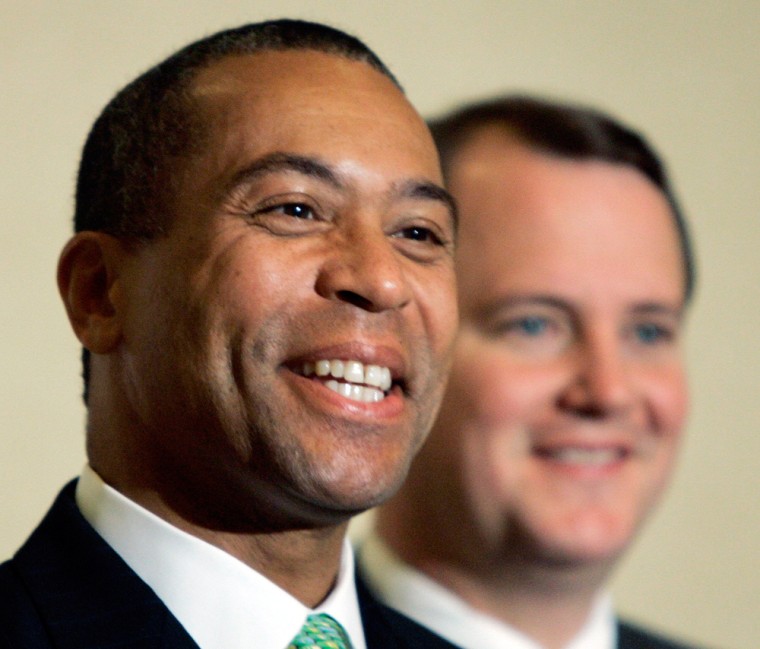Black candidates in the U.S. midterm elections moved toward the political center, seeking votes across the spectrum and playing down race, academics and analysts have said.
The strategy reflects a further shift from African-American leaders rooted in the civil rights era to a generation of politicians for whom race can be used best as a vehicle for appealing to universal themes such as overcoming poverty.
In one of the most high-profile races involving black candidates, Democrat Deval Patrick was elected governor of Massachusetts, becoming the state’s first black governor, after running on a centrist platform.
“You are every black man, woman, and child in Massachusetts and America and every other striver of every other race and kind who is reminded tonight that the American dream is for you too,” a victorious Patrick told supporters.
In Tennessee, Democrat Harold Ford lost narrowly in his run for the Senate in a state where there are more registered Republicans than Democrats.
Bidding to become the first black senator from the South since the post-Civil War era of Reconstruction in the 19th century, Ford adopted positions designed to appeal to conservative voters.
He said he loved hunting, opposed gay marriage and wanted a fence along the U.S.-Mexican border to keep illegal immigrants out.
Making history may not be enough
“It’s not enough for a black candidate to say, ’Let’s make history,’” said Artur Davis, a black Democratic congressman from Alabama who said he was considering running for governor or the Senate.
“Voters are not going to cast a ballot, which is the most important thing they have, around making something abstract like making history,” he told Reuters, adding the idea that race determined politics was becoming “stale.”
The sentiment echoes views held by Illinois Sen. Barack Obama, a rising star in the Democratic Party who says he is contemplating a run for president. Obama, who is black, campaigned on behalf of centrist Democrats in the elections.
Commentators said it was difficult to draw many conclusions about black candidates and voters in an election in which Iraq and President Bush’s leadership dominated.
But the election showed blacks voted for Democrats even when a black Republican was in the race.
GOP hopes dashed, again
Republican Michael Steele lost his bid for an open Senate seat in Maryland and Republicans Ken Blackwell and Lynn Swann were beaten decisively in their bids to become governors of Ohio and Pennsylvania respectively.
“The White House and the Republican National Committee have long held as a goal increasing the percentage of black votes they get because ... if they can get above 20 percent they feel they can have a permanent Republican majority,” said author and journalist Juan Williams on Friday.
“They hoped to break that loyalty .... (but) for the most part, black voters did not respond,” he said.
Animosity toward Bush, memories of Republican opposition to laws passed in the 1960s to guarantee blacks the right to vote and affirmative-action policies to redress racial imbalances in the workplace and education helped explain the reluctance, commentator Earl Ofari Hutchinson said.
“As African-Americans look at this (Republican) Party, it comes across as hostile, anti-civil rights and anti-black interest,” he said.
The Corker ad in Tennessee
Ford’s loss to Republican Bob Corker sparked debate over whether race played a role, not least because an ad for Corker appeared to play on white racial fears of blacks.
“The question is, ’does appeal to race still make a difference in this part of the country?’ Were there people who were unwilling to vote for an African-American and did the Republican campaign, at least in ambiguous ways, appeal to that?’” asked political science professor Bruce Oppenheimer on Friday.
Political scientist Marcus Pohlmann said people unwilling to vote for Ford would probably have voted Republican anyway.
